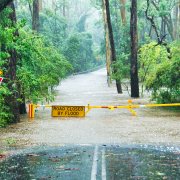Is the Insurance Industry Becoming Automated?
Recently, Accenture.com wrote an article about the projections for the insurance industry for 2023. One of those predictions was the possibility of an increase in automation. Is it good? Beneficial? What potential hazards exist? Is my agent automating my data and policies? Is underwriting becoming automated?
Advantages to automation?
As technology continues to advance, the insurance industry is not immune to change. In fact, automating the insurance agency has become a necessity for many companies in order to stay competitive and improve their bottom line.
One of the biggest benefits of automating an insurance agency is the ability to streamline processes. This can be achieved through implementing software that can handle tasks such as policy renewals, claims processing, and underwriting. By reducing the time it takes to complete these tasks manually, agencies can increase efficiency and reduce costs associated with labor.
In addition to streamlining processes, automation can also help agencies make more informed decisions. Through data analytics and machine learning algorithms, agencies can gain insights into customer behavior and risk factors that were previously difficult or impossible to identify. This information can be used to personalize policies and pricing for customers while also reducing overall risk exposure for the agency.
Another benefit of automation is improved customer service. With automated chatbots and virtual assistants, customers can get quick answers to their questions without having to wait on hold or speak with a representative. Additionally, automated systems can send reminders for policy renewals or provide updates on claim status in real-time.
HOWEVER….
WE ARE NOT DOING THIS TO YOU!
You are a valued customer of London Insurance Agency and the Insurance Service Center of Corbin. We respect our customer’s privacy and relationship throughout the great states of Kentucky and Tennessee. From our personal customers to our business customers, our group of agents and support staff are TRAINED to develop the best policies for your protection and find the best pricing for you. We. Value. You.
In Summary
Overall, automating an insurance agency has numerous benefits that far outweigh any potential challenges. By streamlining processes, improving decision-making capabilities, enhancing customer service, and providing better data security measures, we can make our processes more efficient and limit human error, but our focus is still on you, your protection, and your dollar.










